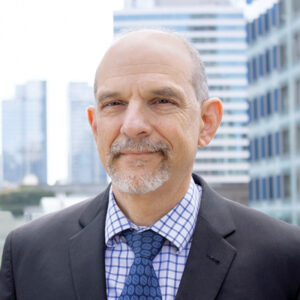Rising 19,341 feet above sea level, Mt. Kilimanjaro is the highest mountain in Africa and the tallest freestanding mountain in the world. It is a dormant but non-extinct volcano which last erupted some 150,000 years ago.
Next week I will climb Mt. Kilimanjaro to draw attention to the risks posed by financial cuts to publicly funded cancer clinical studies, to raise funds to help fill the gaps those cuts have left, and to pay homage to some 200,000 SWOG trial volunteers.
Clinical oncology has made immense progress over the past half-century, in terms of our ability to extend and improve the lives of patients with cancer. The NCI cooperative groups, now called Network groups, have consistently contributed to that progress, through the design and conduct of carefully thought-out clinical trials.
Indeed, a huge percentage of the oncologic treatments patients receive today first proved their safety and effectiveness via formal clinical study. Thousands of these trials, particularly those not suited for even large academic cancer centers, or pharmaceutical companies, have been conducted by this extraordinary cooperative group network, with its tens of thousands of researchers, at institutions worldwide.
Readers of The Cancer Letter know we are poised to potentially make huge breakthroughs in effective treatments for a variety of malignancies, through our increasing knowledge of genetics and cancer immunology. Ironically, a decline in federal funding for the NCI’s clinical trials system has significantly slowed the pace of our progress.
This funding decline has been well chronicled, in these pages and others, as have its results: We conduct fewer trials. We will enroll fewer patients. As a result, we support the work of fewer gifted young researchers.
I have been an avid rock climber and amateur mountaineer for thirty years, and I have always wanted to reach one of the Seven Summits (the highest mountaintop on each of the Earth’s continents). An expedition to Kilimanjaro, sponsored by an alpine organization I am a life member of—the Mazamas—seemed like the perfect vehicle to meet a number of my, and SWOG’s, goals.
In early February, I will be joining the Mazamas’ Kilimanjaro expedition to raise awareness of the risks posed by financial cuts and, with something akin to a 10K run (except it’s a 45 mile, ~20,000 foot high run) or an ice bucket challenge, I am also fund raising. Specifically, with the support of the Alliance, the Childrens’ Oncology Group, and ASCO’s Conquer Cancer Foundation, I’m soliciting donations to help offset those federal cuts.
We have already raised over $100,000 in donations, with an ultimate goal of $250,000. It’s not nearly enough to bridge this past year’s funding gap, but it may serve as the basis for some new grants, or allow some interesting correlative components to future clinical trials. I am happy to report virtually all of the monies raised (98%) will go to support cancer research.
I have two other goals for the climb.
We have already received some very nice TV and print coverage, hopefully helping us achieve our goal to increase the public’s awareness of the deficit, and the underlying importance of clinical oncology research in general.
Also, since our founding in 1956, SWOG has led more than 1,000 studies and has enrolled more than 200,000 volunteers on our trials. I particularly want to note the contributions of these 200,000. These trial volunteers are heroes who have contributed so much, and placed so much trust in us, their oncologists. In large part, I’m making the climb to honor them.
The best way I know to do that is to bring wider public attention to what they have offered, to the astonishing benefits they’ve brought to patients who followed them, and to the need for more cancer patients and healthy volunteers alike to join clinical trials.
I will be taking almost 200,000 of those clinical trial volunteers mentioned above with me up Kilimanjaro, their initials emblazoned on a large banner we will unfurl at the summit.
I’ll be partnering on the climb with fellow SWOG oncologist Brett Sheppard.
Though I’ve climbed mountains throughout the Northwest for many years, Kilimanjaro takes the challenge to a whole new level.
To acclimate my body to the lower oxygen levels near Kilimanjaro’s summit, I have been using a normobaric, high-altitude sleeping tent nightly for the past several weeks. I’ve also been engaged in a rigorous physical conditioning program with several of my co-climbers. Having Type 1 diabetes brings me some unexpected mountain-climbing challenges, such as how to keep my insulin from freezing at high altitude.
I’ll be blogging throughout my climb, with postings to http://www.facebook.com/ClimbforCancerClinicalTrials, and will be using a tracking app that will report my location every few minutes. Those who are curious can watch our progress in real time at http://www.swog.org/Kilimanjaro.
The American Cancer Society reported last month that 1.5 million cancer deaths were avoided in the United States over the last two decades due to improvements in treatment and prevention. The investment and sacrifices made by the 200,000 we will be honoring on Mt. Kilimanjaro, and by hundreds of thousands of others like them, have brought us to this critical point. We must repay them by re-committing to public support for the cancer clinical research they gave themselves to so fully.
The author is the chair of SWOG and professor of medicine at the Knight Cancer Institute at the Oregon Health and Science University.













